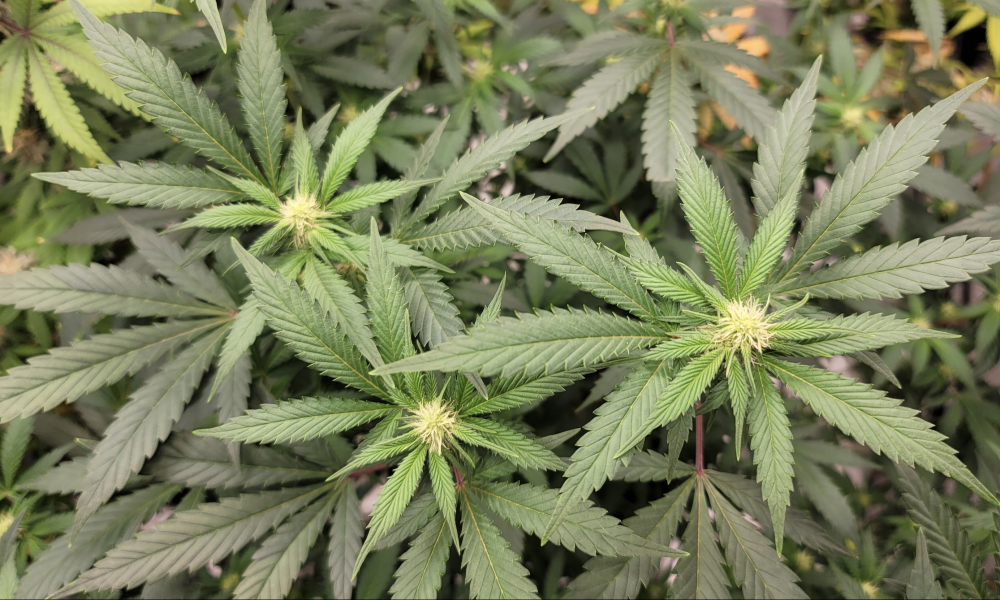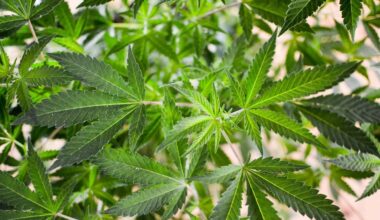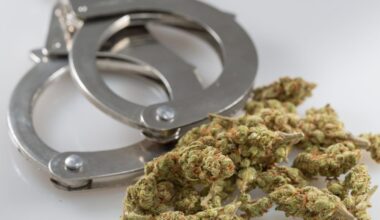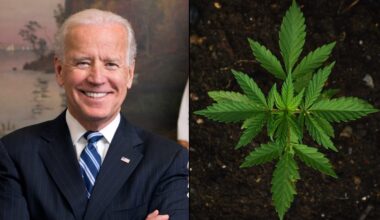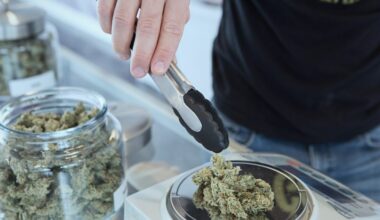Michigan activists have filed a statewide ballot initiative that would legalize possessing, cultivating and sharing psychedelics and set up a system for their therapeutic and spiritual use.
The national psychedelics advocacy group Decriminalize Nature, its Michigan chapter and the youth-led organization Students for Sensible Drug Policy (SSDP) are partnering on the effort.
The Michigan ballot measure would legalize a range of entheogenic substances for adults 18 and older. Laws currently prohibiting psilocybin, psilocyn, ibogaine, mescaline, peyote and DMT would be affected by the policy change.
“We are excited to have filed language with the state of Michigan, we look forward to approval by the State Board of Canvassers and hitting the ground with petitions,” Myc Williams, co-director of Decriminalize Nature Michigan who sits on the SSDP Board of Directors, told Marijuana Moment.
The proposal would authorize the “supervision, guidance, therapeutic, harm reduction, spiritual, counseling, and related supportive services with or without remuneration,” according to the text of the initiative, which was filed with the secretary of state’s office on Tuesday.
There’s also a sales component, with the measure authorizing entities “designated by a hospital or psychiatric hospital” that has received a “certificate of need” from the state Department of Health and Human Services to cultivate and sell the psychedelics to people whose doctors have issued a written recommendation for it.
Beside legalizing psychedelics, the measure proposes to amend state drug statutes, significantly reducing criminal penalties for possessing any other controlled substances classified under Schedule I or Schedule II of state law.
It would also remove testing equipment used to determine the potency and purity of drugs from the definition of paraphernalia and protect people from being prosecuted for “minuscule, residual or unusable” amounts of drugs found on paraphernalia.
“SSDP is proud to have pushed forward a policy that radically reduces criminalization of people who use drugs,” Jason Ortiz, the group’s executive director, told Marijuana Moment. “Michigan was a state that still has life sentences for drug possession, and today we moved a step closer to ending the madness that is this war on our communities.”
Activists plan to refile the ballot measure soon because the current version hosted on the secretary of state’s site has a small typo incorrectly listing the committee as “Michigan Initiative for Community Health” when it should be “Michigan Initiative for Community Healing.”
The deadline to submit proposed summary language and/or explanatory material to the Board of State Canvassers is February 8. Then the board will meet to discuss the summary on February 11 and must either formally approve or reject it by March 3.
Michigan might not seem like the obvious choice for such bold psychedelics reform, but it’s become something of a hub for advancing the issue at the local level. Most recently, Detroit voters approved a ballot initiative to widely decriminalize psychedelics in November.
The Ann Arbor City Council previously elected to make enforcement of laws prohibition psychedelics like psilocybin, ayahuasca and DMT among the city’s lowest priorities—and lawmakers then followed up by declaring September Entheogenic Plants and Fungi Awareness Month.
After local legislators passed that decriminalization resolution in 2020, the Washtenaw County prosecutor announced that his office will not be pursuing charges over possessing entheogenic plants and fungi, “regardless of the amount at issue.”
—
Marijuana Moment is already tracking more than 1,000 cannabis, psychedelics and drug policy bills in state legislatures and Congress this year. Patreon supporters pledging at least $25/month get access to our interactive maps, charts and hearing calendar so they don’t miss any developments.![]()
Learn more about our marijuana bill tracker and become a supporter on Patreon to get access.
—
In September, the Grand Rapids City Council approved a resolution supporting the decriminalization of a wide range of psychedelics. However, the measure fell short of what activists had hoped, in that it doesn’t actually change any city enforcement practices and merely expresses support for future reforms.
A pair of state senators also introduced a bill in September to legalize the possession, cultivation and delivery of an array of plant- and fungi-derived psychedelics like psilocybin and mescaline.
Outside of Michigan, activists in Colorado recently filed revised versions of 2022 ballot initiatives to similarly legalize psilocybin and establish “healing centers” in the state. A competing campaign filed a different psychedelics legalization last week.
A bill to decriminalize a wide array of psychedelics in Virginia was taken up by a House of Delegates panel last week, only to be pushed off until 2023. A separate Senate proposal to decriminalize psilocybin alone was defeated in a key committee on Monday.
In Oregon, where voters approved a historic 2020 initiative to legalize therapeutic psilocybin program, as well as another to broadly decriminalize currently illicit drugs, lawmakers introduced a bill last week meant to promote equity into the program.
Two Republican Oklahoma lawmakers recently filed bills meant to promote research into the therapeutic potential of psilocybin, and one of the measures would further decriminalize low-level possession of the psychedelic.
A GOP Utah lawmaker also introduced a bill last week that would set up a task force to study and make recommendations on the therapeutic potential of psychedelic drugs and possible regulations for their lawful use.
In Kansas, A lawmaker also recently filed a bill to legalize the low-level possession and cultivation of psilocybin mushrooms.
A Republican Missouri lawmaker introduced a bill this month to give residents with serious illnesses legal access to a range of psychedelic drugs like psilocybin, ibogaine and LSD through an expanded version of the state’s existing right-to-try law.
California Sen. Scott Wiener (D) told Marijuana Moment in a recent interview that his bill to legalize psychedelics possession stands a 50/50 chance of reaching the governor’s desk this year. It already cleared the full Senate and two Assembly committees during the first half of the two-year session.
Washington State lawmakers also introduced legislation this month that would legalize what the bill calls “supported psilocybin experiences” by adults 21 and older.
In Vermont, a broad coalition of lawmakers representing nearly a third of the House introduced a bill to decriminalize drug possession.
New Hampshire lawmakers filed measures to decriminalize psilocybin and all drugs.
Last year, the governor of Connecticut signed legislation that includes language requiring the state to carry out a study into the therapeutic potential of psilocybin mushrooms.
At the congressional level, bipartisan lawmakers sent a letter to the Drug Enforcement Administration (DEA) this month, urging that the agency allow terminally ill patients to use psilocybin as an investigational treatment without the fear of federal prosecution.
Meanwhile, activists announced a major national partnership as the reform movement continues to spread in cities and states across the country.
Decriminalize Nature, which has been behind numerous successful psychedelics decriminalization campaigns at the local level, is teaming up with SSDP to push for drug policy reform.
“A national alliance of these two organizations is a unique opportunity to tackle the harms of the drug war from all sides” Myc Williams, SSDP board member and co-director of Decriminalize Nature Michigan, said in a press release. “We are paving a path of unity that addresses both the injustices of current drug policy and provides accessible avenues for healing from the traumas that have occurred as a result.”
Ortiz, the SSDP executive director, said that the groups are “uniting today to build the power needed to correct the profit driven framing being forced on us by corporations and their countless lobbyists.”
“This alliance will pair youth leaders with community practitioners to ensure that decriminalization and reparations are the priority for the drug policy movement as we end the disastrous and malicious war on drugs,” he said. “Wherever they have a lobbyist, we will have an organized community ready to meet them.”
Climate Workforce Would Be Protected From Marijuana Employment Testing Under New Congressional Bill
Photo elements courtesy of carlosemmaskype and Apollo.
Medical Disclaimer:
The information provided in these blog posts is intended for general informational and educational purposes only. It is not a substitute for professional medical advice, diagnosis, or treatment. Always seek the advice of your physician or other qualified healthcare provider with any questions you may have regarding a medical condition. The use of any information provided in these blog posts is solely at your own risk. The authors and the website do not recommend or endorse any specific products, treatments, or procedures mentioned. Reliance on any information in these blog posts is solely at your own discretion.
